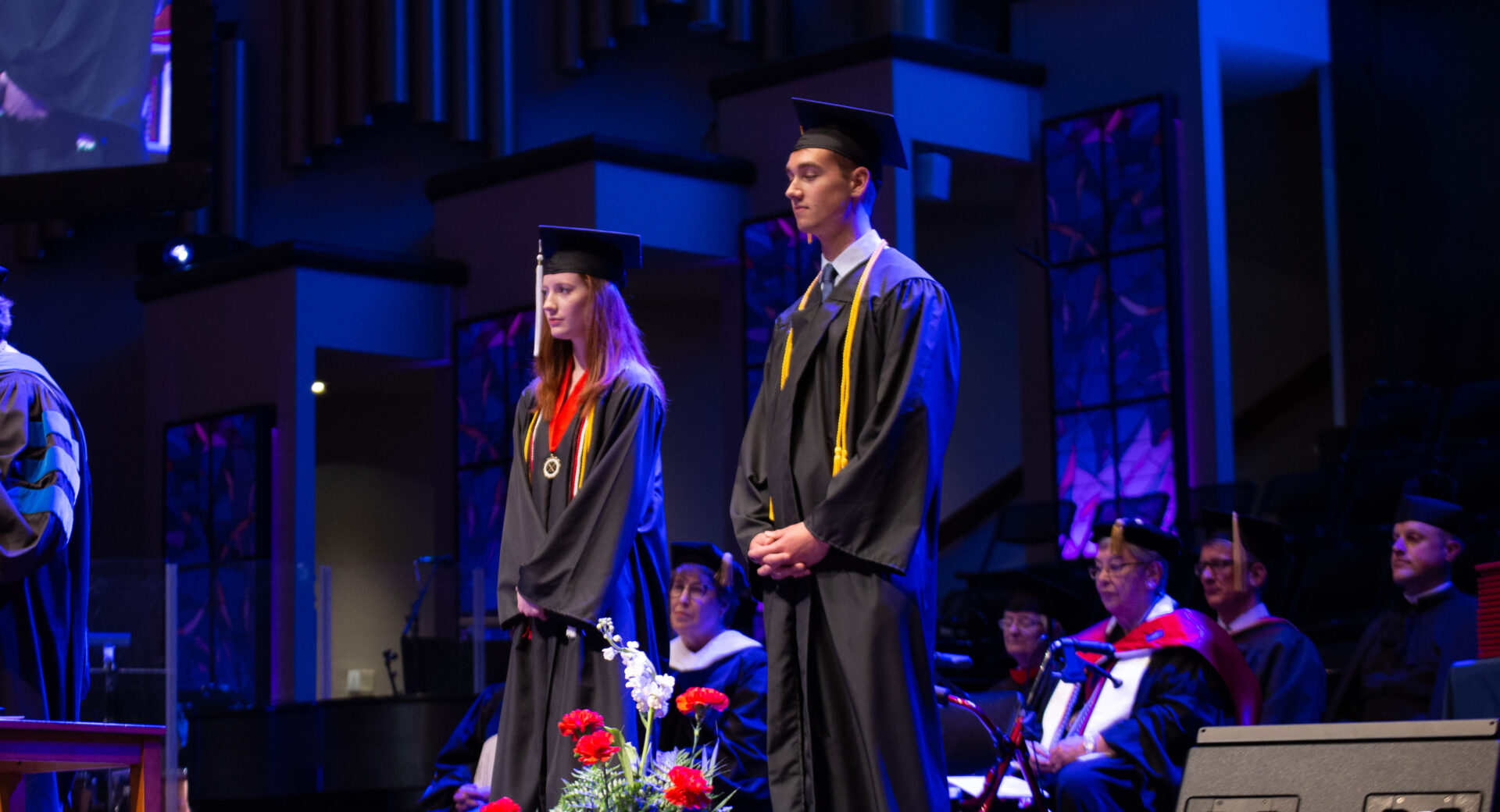Newman University announced the recipients of the 2019 Ablah Awards during the spring Commencement Ceremony Saturday, May 11.
The Ablah Awards, established by Fran and Geri (Ablah) Jabara, honor the memory of Geri’s parents, Harvey J. and Leona J. Ablah, and perpetuate their vision of entrepreneurism and the American dream.
Award recipients must have completed at least 62 credit hours at Newman University and graduate with a grade point average of 3.2 or higher. Each student receives a $2,500 award.
The 2019 recipient of the Leona J. Ablah Award was Amy Emerson of Wichita, Kansas, and the recipient of the Harvey J. Ablah Award was Brandon Steiner of Wichita, Kansas.
Amy Emerson
Emerson, an English and communication major, said she wasn’t prepared to hear her name called for the award during the graduation ceremony, adding that “it didn’t seem fair to singled out” because so many people are deserving of the acknowledgment.
She credited those that came before her who paved the path for her and the numerous graduates of Newman.
“I thought about how many people do so much work and invest their passion and their knowledge, money, gifts and talents to making the education of people possible.
“They built the foundation for me to be here and to be able to walk the stage and receive my education and I’m just so grateful for everybody who was part of that experience. My professors, my peers, my friends, teammates, coworkers, mentors, my family … there are just so many people to thank.”
Brandon Steiner
Steiner, a biology major with a concentration in pre-chiropractic and minoring in sports medicine, said he also was shocked to hear his name called and considered it an honor to be presented with the award.
He said he highly enjoyed his time at Newman and will carry with him a large number of takeaways.
“I mean, what a time, you know … it was a fantastic time with fantastic people, friends, faculty and peers,” said Brandon. “My goal is to return the favor. What Newman’s done for me, I hope to do for other incoming future students and the future of society.”

